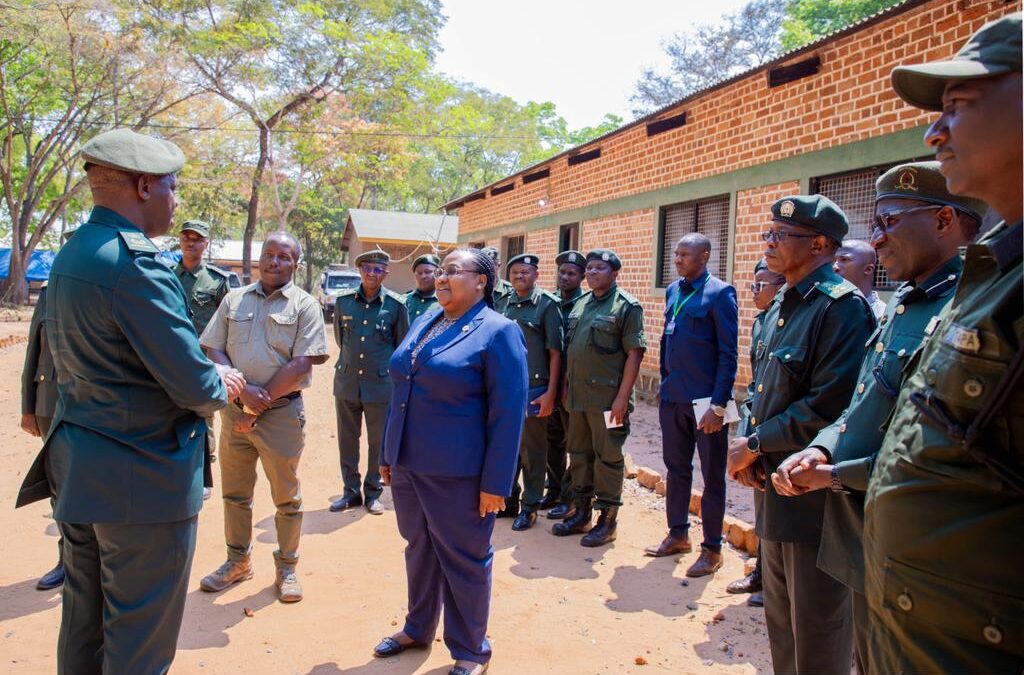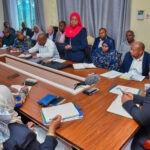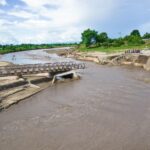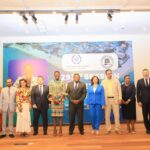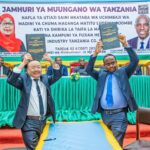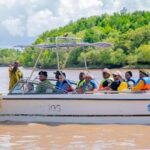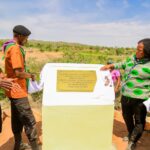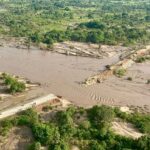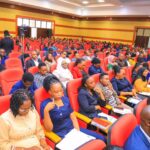Empowering Tanzania’s Future: Initiatives by Hon. Ambassador Dr. Pindi Chana
The Minister of Natural Resources and Tourism, Hon. Ambassador Dr. Pindi Chana, has been instrumental in spearheading several transformative initiatives that are redefining Tanzania’s approach to natural resource management and tourism. Her leadership style is defined by a strong commitment to sustainable development, a passion for education and a dedication to empowering communities across the nation.
Championing Sustainable Development
Dr. Pindi Chana’s commitment to sustainable development is evident in her numerous projects and policies designed to safeguard Tanzania’s rich natural heritage. She has been pivotal in promoting practices that strike a balance between economic growth and environmental stewardship, ensuring the responsible utilisation and preservation of the country’s natural resources for future generations.
Fostering Educational Opportunities
Dr. Chana is a strong advocate for enhancing educational infrastructure and opportunities, recognising the critical role of education in national development. Her initiatives include the promotion of vocational training at institutions such as the Community Natural Resources Conservation Training College (CBCTC) in Likuyu Sekamaganga. By encouraging young Tanzanians to acquire skills in natural resource management, she is helping to build a knowledgeable and skilled workforce that can contribute to the country’s sustainable development goals.
Empowering Communities
Dr. Chana’s approach is founded on the principle of community empowerment. She is convinced of the potential of local communities to drive change and has consistently sought to engage them in conservation and tourism initiatives. Her recommendation for village governments to implement long-term environmental conservation and fire control strategies is evidence of her belief in the value of grassroots involvement. By equipping communities with the necessary tools and knowledge, she is fostering a sense of ownership and responsibility towards the environment.
Innovative Tourism Initiatives
Dr. Chana’s pioneering approach to tourism is exemplified by the launch of balloon tourism in Ruaha National Park. This initiative offers tourists a distinctive and exhilarating experience while showcasing the park’s natural splendour and biodiversity. By diversifying the tourism offering, she is attracting a greater number of visitors and generating additional revenue for conservation efforts.
Government Support and Infrastructure Development
During her tenure, the government has allocated considerable resources towards enhancing infrastructure, with a particular focus on rural regions. The donation of approximately 583.5 million TZS for the construction of the New Lanchi Primary School in Mtowisa Village is a clear indication of the government’s commitment to education and community development. Such investments are vital for providing children with superior learning environments and prospects for a more promising future.
Commitment to Environmental Conservation
Dr. Chana’s visit to the Miti Tree Farm, which is managed by the Tanzania Forest Service Agency (TFS), demonstrates her commitment to environmental conservation. The farm functions as a model for sustainable forestry practices, illustrating how tree farming can foster ecological balance and economic development. Her promotion of sustainable forestry forms part of a wider strategy to tackle deforestation and encourage reforestation initiatives nationwide.
The Honourable Ambassador Dr. Pindi Chana’s leadership at the Ministry of Natural Resources and Tourism is characterised by a comprehensive and forward-thinking approach. Her commitment to sustainable development, education and community empowerment is driving positive change and establishing a robust foundation for Tanzania’s future. Her initiatives are not only enhancing the country’s natural resources and tourism sectors, but also empowering its people to take an active role in shaping a sustainable and prosperous future.
Promoting Skills Development at CBCTC Likuyu Sekamaganga
The Honourable Ambassador Dr. Pindi Chana has been a prominent proponent of the Community Natural Resources Conservation Training College (CBCTC) in Likuyu Sekamaganga, underscoring its critical role in shaping Tanzania’s future in natural resource management. This institution is dedicated to providing comprehensive training programmes that equip young Tanzanians with the essential skills and knowledge required to effectively manage and conserve the country’s rich natural resources.
Diverse Training Programs
CBCTC Likuyu Sekamaganga offers a comprehensive range of training programmes, designed to meet the diverse requirements of its student body. The programmes encompass a range of disciplines within the field of natural resource management, including wildlife conservation, forestry, sustainable agriculture and environmental protection. The college’s comprehensive curriculum ensures that students gain a holistic understanding of the interconnectedness of ecosystems and the importance of sustainable practices.
Hands-On Learning and Practical Experience
One of CBCTC’s key strengths is its focus on hands-on learning and practical experience. Students are not only instructed in theoretical concepts but are also required to participate in fieldwork and practical projects, allowing them to apply their knowledge in actual work environments. This approach helps to develop their confidence and competence in managing natural resources, equipping them with the skills required for careers in conservation and environmental management.
Empowering the Youth
Dr. Pindi Chana’s appeal to young people to enrol in CBCTC is driven by her vision of empowering the next generation of leaders. By equipping the younger generation with the necessary tools and education, she aims to cultivate a cadre of environmentally conscious individuals with a strong commitment to sustainable development. These young leaders will play a pivotal role in spearheading initiatives that safeguard Tanzania’s natural heritage.
Community Engagement and Awareness
In addition to its commitment to formal education, CBCTC is also dedicated to community engagement and raising awareness about the importance of natural resource conservation. The college runs outreach programmes and workshops in local communities, providing residents with education on sustainable practices and the benefits of conservation.
This community-centric approach ensures that the knowledge and skills imparted at the college have a broader impact, fostering a culture of conservation beyond the classroom.
Supporting National Development Goals
The training provided at CBCTC is aligned with Tanzania’s national development goals, particularly those related to environmental sustainability and economic growth. By producing highly-skilled professionals in the field of natural resource management, the college is playing an instrumental role in the country’s efforts to achieve sustainable development. CBCTC graduates are well-positioned to assume roles in government agencies, non-governmental organisations and private sector companies, where they can drive policy and practice changes that promote conservation and sustainable resource utilisation.
The promotion of the Community Natural Resources Conservation Training College (CBCTC) in Likuyu Sekamaganga by Hon. Ambassador Dr. Pindi Chana demonstrates her dedication to education and sustainable development. By encouraging young Tanzanians to take advantage of the opportunities offered by CBCTC, she is fostering a generation of skilled, knowledgeable, and environmentally conscious leaders, which will be invaluable to the country’s future. It is vital that these efforts are maintained in order to guarantee the long-term conservation of Tanzania’s natural resources and the continued prosperity of its people.
Launch of Balloon Tourism in Ruaha National Park
In a significant event marking the 60th anniversary of Ruaha National Park, Hon. Ambassador Dr. Pindi Chana officially launched balloon tourism, introducing an exciting new option for visitors to experience the park’s breathtaking landscapes and diverse wildlife. This pioneering project is set to revolutionise the tourism experience in Ruaha, offering a distinctive perspective on one of Tanzania’s most cherished natural reserves.
A Unique Perspective on Ruaha’s Beauty
Balloon tourism offers an unparalleled vantage point from which to appreciate the vast and varied terrain of Ruaha National Park. From their vantage point above the park, visitors can enjoy uninterrupted views of the expansive savannahs, meandering rivers, and dense woodlands. From this elevated perspective, visitors can gain a deeper understanding of the park’s diverse ecosystems and the complex patterns of wildlife movement across the landscape.
Enhancing Tourism Offerings
The introduction of balloon tourism represents a significant enhancement to the range of activities available to visitors in Ruaha National Park. The addition of this serene and awe-inspiring experience now allows traditional game drives and walking safaris to be complemented by a new offering. By diversifying the tourism offerings, the park can attract a broader audience, including those seeking unique and memorable adventures.
Boosting the Local Economy
It is anticipated that the launch of balloon tourism will have a positive impact on the local economy. An increase in visitor numbers will generate additional revenue for the park and surrounding communities. Local businesses, including lodges, restaurants and tour operators, will benefit from the influx of tourists. This economic boost has the potential to create jobs and improve the livelihoods of residents in the area.
Promoting Conservation Efforts
One of the primary goals of introducing balloon tourism is to support conservation efforts within Ruaha National Park. Revenue generated from balloon tours can be reinvested into conservation projects, including anti-poaching initiatives, habitat restoration and wildlife monitoring programmes. By integrating tourism with conservation, Dr. Pindi Chana aims to guarantee the preservation of Ruaha’s natural beauty and biodiversity for future generations.
A Milestone in Sustainable Tourism
The launch of balloon tourism also represents a significant step forward in the field of sustainable tourism practices. Balloon flights have a minimal environmental impact compared to other forms of tourism. They do not require extensive infrastructure and cause minimal disturbance to wildlife. This is in line with Dr Chana’s wider objective of promoting eco-friendly tourism that supports conservation and sustainable development.
The introduction of balloon tourism in Ruaha National Park is a testament to Hon. Ambassador Dr. Pindi Chana’s innovative and forward-thinking approach to tourism development. This initiative offers a distinctive and environmentally friendly way to experience the park, enhancing the visitor experience while supporting local economies and conservation efforts. As Ruaha National Park celebrates its 60th anniversary, the launch of balloon tourism marks a new chapter in its history, offering exciting opportunities for tourists and the local community alike.
Government Support for Education in Rukwa Region
Under the guidance of President Dr. Samia Suluhu Hassan, the Tanzanian government has made a significant investment in the education sector, with a particular focus on rural areas. One of the most notable contributions is the donation of approximately 583.5 million TZS for the construction of the New Lanchi Primary School in Mtowisa Village, Sumbawanga District, Rukwa Region. This initiative demonstrates the government’s commitment to improving educational infrastructure and providing quality learning opportunities for children in underserved communities.
Addressing Educational Inequality
The construction of the New Lanchi Primary School represents a strategic initiative to address educational inequality in Tanzania. Rural areas frequently encounter substantial obstacles, including insufficient school facilities, a scarcity of qualified instructors, and restricted access to educational resources. The government’s investment in the construction of new schools is designed to bridge the gap between urban and rural education, ensuring that all children, regardless of their location, have access to quality education.
Enhancing Learning Environments
The construction of a well-designed school building is essential for the creation of an optimal learning environment. The New Lanchi Primary School will be equipped with modern classrooms, adequate sanitation facilities and essential learning materials in line with the latest industry standards. It is vital that these improvements are made in order to foster a positive educational experience, where students can focus on their studies in a safe and supportive environment. Furthermore, enhanced learning environments contribute to improved academic performance and overall student well-being.
Empowering Future Generations
Education is a powerful tool for driving empowerment and social mobility. The government is making a strategic investment in Tanzania’s future by improving educational facilities for children. Access to quality education provides a pathway to higher education and enhanced employment opportunities, which in turn contribute to the socio-economic development of the region. Individuals with a good education are better placed to contribute to their communities and effect positive change.
Community Involvement and Ownership
The construction of the New Lanchi Primary School is not merely a government initiative; it also entails the active participation of the local community. Involving community members in the planning and construction process fosters a sense of ownership and responsibility towards the school. This collaborative approach guarantees that the school will meet the specific needs of the community and encourages local support for its maintenance and sustainability.
Supporting National Development Goals
This investment in education is aligned with Tanzania’s broader national development goals, particularly those outlined in the Tanzania Development Vision 2025. The vision places a strong emphasis on the importance of education in enabling Tanzanians to achieve a high-quality livelihood. By enhancing educational infrastructure, the government is establishing a foundation for a knowledgeable and skilled population capable of propelling the country’s development agenda forward.
The Tanzanian government’s donation for the construction of the New Lanchi Primary School in Mtowisa Village is evidence of its commitment to improving education in rural areas. Under the guidance of President Dr. Samia Suluhu Hassan, this initiative represents a strategic approach to addressing educational disparities, enhancing learning environments, and empowering future generations. The government’s investment in education is not only creating new schools but also laying the foundations for a brighter future for Tanzania’s children and the nation as a whole.

Environmental Conservation and Fire Control Strategies
The Honourable Ambassador Dr. Pindi Chana has highlighted the necessity for the development of long-term strategies for environmental conservation and fire control at the village level. It is crucial to implement these initiatives in order to protect Tanzania’s natural resources and guarantee that they continue to provide benefits and enjoyment for future generations. By promoting sustainable practices and effective fire management, Dr. Chana aims to mitigate the adverse effects of environmental degradation and climate change.
Importance of Environmental Conservation
It is vital that we implement effective environmental conservation strategies to ensure the continued health and biodiversity of our ecosystems. Tanzania boasts a rich variety of flora and fauna, many of which are unique to the region. It is vital that these natural resources are protected in order to maintain the ecological balance and support the livelihoods of communities that depend on them. Furthermore, conservation efforts play a pivotal role in combating climate change by maintaining forests and other natural carbon sinks.
Developing Long-Term Strategies
Dr. Chana’s proposal is to develop comprehensive, long-term strategies, tailored to the specific needs and conditions of each village. The strategies should include the following elements:
- Sustainable Land Use Practices: Encouraging practices such as agroforestry, sustainable agriculture, and reforestation to prevent land degradation and promote soil health.
- Water Resource Management: Implementing measures to protect and sustainably manage water resources, ensuring that communities have access to clean water while preserving aquatic ecosystems.
- Wildlife Protection: Establishing protected areas and wildlife corridors to safeguard habitats and reduce human-wildlife conflicts.
Effective Fire Control Measures
Effective fire control is a crucial element of environmental management, particularly in regions with a high risk of wildfires. Effective fire management strategies include:
- Community Education and Awareness: Educating communities about the causes and risks of wildfires, and promoting fire prevention practices.
- Early Warning Systems: Developing and implementing early warning systems to detect and respond to fires quickly, minimizing damage.
- Controlled Burns: Using controlled or prescribed burns to reduce the accumulation of flammable materials and prevent larger, uncontrolled wildfires.
Community Involvement and Empowerment
A central tenet of Dr. Chana’s methodology is the active involvement and empowerment of local communities. By engaging village governments and residents in the development and implementation of conservation and fire control strategies, she ensures that these measures are locally relevant and sustainable, in line with the needs of the local community. Community involvement encourages a sense of ownership and responsibility, which is vital for the long-term success of environmental initiatives.
Mitigating Climate Change
Furthermore, the strategies proposed by Dr. Chana align with broader initiatives to address climate change. Sustainable land use and conservation practices play a key role in carbon sequestration, while effective fire management is an important strategy for reducing greenhouse gas emissions from wildfires. These actions form part of Tanzania’s commitment to global climate goals and its efforts to build resilience against the impacts of climate change.
The Honourable Ambassador Dr. Pindi Chana’s call for long-term environmental conservation and fire control strategies emphasises the significance of proactive and sustainable management of natural resources. The implementation of these measures will enable communities to protect their environment, support biodiversity and contribute to the fight against climate change. Dr. Chana’s leadership in this area is laying the foundations for a more sustainable and resilient future for Tanzania.
Visit to Miti Tree Farm
During her visit to the Miti Tree Farm, which is managed by the Tanzania Forest Service Agency (TFS) in Sumbawanga District, Hon. Ambassador Dr. Pindi Chana emphasised the importance of forestry in terms of both environmental conservation and economic development. The visit served to illustrate the farm’s exemplary practices and its contributions to sustainable development in Tanzania.
Importance of Forestry in Environmental Conservation
Forestry is a vital component in maintaining ecological balance and biodiversity. Trees act as carbon sinks, absorbing carbon dioxide from the atmosphere and thereby contributing to the mitigation of climate change. Furthermore, they prevent soil erosion, maintain water cycles and provide habitats for a wide range of species. Dr. Chana highlighted the importance of sustainable forestry practices in preserving the ecological functions and ensuring the health of the environment.
Sustainable Forestry Practices at Miti Tree Farm
The Miti Tree Farm is a leading example of sustainable forestry practices. The farm is managed by the Tanzania Forest Service Agency (TFS), which employs techniques designed to promote the long-term health and productivity of forest ecosystems. These practices include:
- Selective Logging: Harvesting trees in a way that minimizes damage to the surrounding environment and allows for natural regeneration.
- Agroforestry: Integrating trees with crops and livestock to create more diverse, productive, and sustainable land-use systems.
- Reforestation and Afforestation: Planting trees in deforested areas and establishing new forests to restore degraded lands and increase forest cover.
Economic Benefits of Tree Farming
Tree farming offers dual benefits: it is beneficial for the environment and also has positive economic implications. It provides a source of income for local communities through the sale of timber, non-timber forest products and ecosystem services. Dr. Chana emphasised the role of the Miti Tree Farm in supporting community livelihoods through job creation and the promotion of sustainable economic activities. The dual focus on environmental and economic benefits makes tree farming an effective tool for sustainable development.
Community Engagement and Education
One of the key factors contributing to the success of Miti Tree Farm is its active engagement with local communities. The farm runs educational programmes and workshops for local residents, providing insight into sustainable forestry practices and the advantages of tree farming. By involving the community, the farm fosters a sense of ownership and responsibility towards the environment, which in turn enhances the reputation of the business. This approach guarantees the long-term viability of conservation efforts, with local residents and workers playing a pivotal role in their success.
Supporting National and Global Goals
The sustainable practices demonstrated at the Miti Tree Farm are aligned with Tanzania’s national development goals and international commitments to environmental conservation. By promoting sustainable forestry, the farm makes a valuable contribution to the country’s efforts to combat climate change, protect biodiversity and achieve sustainable development. Dr. Chana’s visit highlights the importance of these efforts and the necessity for sustained support and investment in sustainable forestry.
The visit of Hon. Ambassador Dr. Pindi Chana to the Miti Tree Farm serves to illustrate the crucial part that forestry plays in environmental conservation and economic development. The farm’s sustainable practices serve as a model for other regions, demonstrating how tree farming can contribute to ecological balance and community livelihoods, while also providing a source of income for local communities. By virtue of her advocacy and leadership, Dr. Chana is promoting a vision of sustainable development that benefits both people and the planet.
Conclusion
The Honourable Ambassador Dr. Pindi Chana’s initiatives exemplify a comprehensive and forward-thinking approach to natural resource management and tourism development in Tanzania. By prioritising education, sustainable tourism, environmental conservation and community engagement, she is establishing the foundations for a more prosperous and sustainable future for the nation.
Education as a Foundation
Dr. Chana’s focus on education, particularly through institutions like the Community Natural Resources Conservation Training College (CBCTC) in Likuyu Sekamaganga, is vital for developing a knowledgeable and skilled workforce. By equipping young Tanzanians with the necessary skills and knowledge, she is fostering a generation of leaders who are prepared to tackle the challenges of sustainable development and environmental conservation.
Innovative Tourism Development
The launch of balloon tourism in Ruaha National Park is a testament to Dr. Chana’s innovative approach to enhancing Tanzania’s tourism sector. This initiative offers visitors a unique and memorable experience while also supporting local economies and conservation efforts. By diversifying the tourism offering, she is attracting a broader audience and generating additional revenue that can be reinvested in the preservation of Tanzania’s natural beauty.
Commitment to Environmental Conservation
Dr. Chana’s proposal for long-term environmental conservation and fire control strategies demonstrates her commitment to safeguarding Tanzania’s natural resources. By promoting sustainable practices and effective fire management, she is assisting communities in mitigating the impacts of environmental degradation and climate change. It is crucial to maintain the ecological balance in order to guarantee that future generations can enjoy Tanzania’s rich biodiversity.
Community Empowerment
A key objective for Dr. Chana is to empower local communities. Her initiatives, such as the support for the construction of the New Lanchi Primary School and the promotion of sustainable forestry practices at the Miti Tree Farm, demonstrate her commitment to improving livelihoods and fostering a sense of ownership and responsibility towards the environment. By engaging local communities in conservation and development projects, she is ensuring the long-term viability and effectiveness of these initiatives.
A Vision for the Future
The holistic approach of the Honourable Ambassador Dr. Pindi Chana is paving the way for a brighter future for Tanzania. Her initiatives not only enhance the country’s natural beauty and biodiversity but also empower its people to play an active role in preserving their heritage and promoting economic growth. Thanks to her guidance, Tanzania is making considerable progress towards sustainable development, guaranteeing the protection of its natural resources and fostering the prosperity of its communities.
Tanzania Media
- Kanyala Ferry Launch: TEMESA’s New Service for 15,000 Sengerema Residents (Mwanza) - 18 August 2025
- Russia-Tanzania Naval Cooperation: How the Smolny Training Ship Boosts Dar es Salaam’s Maritime Security - 18 August 2025
- Tanzania’s ICGLR Commitment: Stabilising the DRC & Great Lakes Region - 18 August 2025

